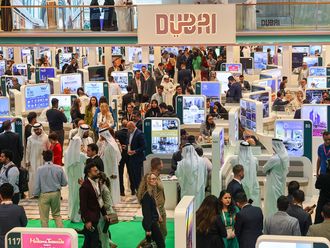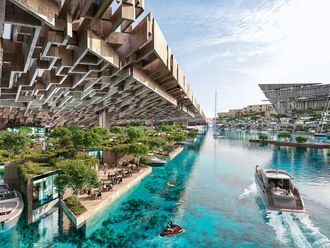Dubai: 'Washing the dirty linen' has become a more important issue in the global travel and tourism industry these days than the global debate on how industries could and should help eradicate poverty.
More important, how frequently does a hotel guest wash or change the towels - will have an impact on the environment - speakers at a panel discussion at the Global Travel and Tourism Summit that started on Monday in Dubai, said.
The less the hotels have to change and wash towels, the more they save.
"However, how much of this saving is spent back into the community or passed on for a noble cause, is very important to customers," said Mahmud Jan Mohammad, managing director, Serena Hotels Africa. "If the welcome pack at a hotel room says that part of the costs saved, or a dollar, would be spent in conserving the environment, then the customer is more likely to come forward and listen."
The carbon footprint of the global travel and tourism industry is about five to six per cent, which is roughly equally split between the travel and tourism sectors.
The remaining 95 per cent of carbon emissions come from other industries and sectors, tourism officials at a global summit told the delegates here in Dubai.
"We would like to reduce it by 20 per cent every year," Jean-Claude Baumgarten, president and chief executive of the World Travel and Tourism Council (WTTC) told Gulf News on the sidelines of the summit. "We want to create a global awareness on responsible tourism so that the industry could become sustainable globally."
Mohammad Al Habbai, chief executive of Dubailand - Dubai's answer to the Disneyland - said his organisation is ensuring that the government's regulation on environment and water conservation are followed by all the developers of the 24 theme parks and projects.
"The per capita greenery globally averages between eight to nine square feet. In Dubai, our plan is to make it 25 square feet per person," he told delegates.
"We are in an economy that is among 300 million Arabs and could be accessed by 1.8 million consumers who are within five hours of flying time. Dubai International has handled 34 million passengers last year, which by 2020, we expect to cross 120 million.
"However, we have been executing projects to cater to the expected growth.
Guidelines
"Dubailand is a three billion square feet mega project that will host 24 theme parks catering to millions of tourists. We are conscious of the environmental regulations and we are working on those guidelines set by Dubai Government."
J.W. (Bill) Marriott Jr, chairman and chief executive of Marriott International, said, his company will offset its carbon footprint by partnering with the Brazilian state of Amazonas to preserve and protect 1.4 million acres of the Amazon rainforest.
"At Marriott we realise that we are all guests on this planet. We share a responsibility to look out for the long term health of the environment. That's why we believe the future of our business is green," he said.
As part of working with a range of green organisations, Marriott has recently collaborated with Conservation International to map the carbon footprint for its managed hotels baseline of 2.9 million metric tonnes of carbon dioxide emissions a year.












